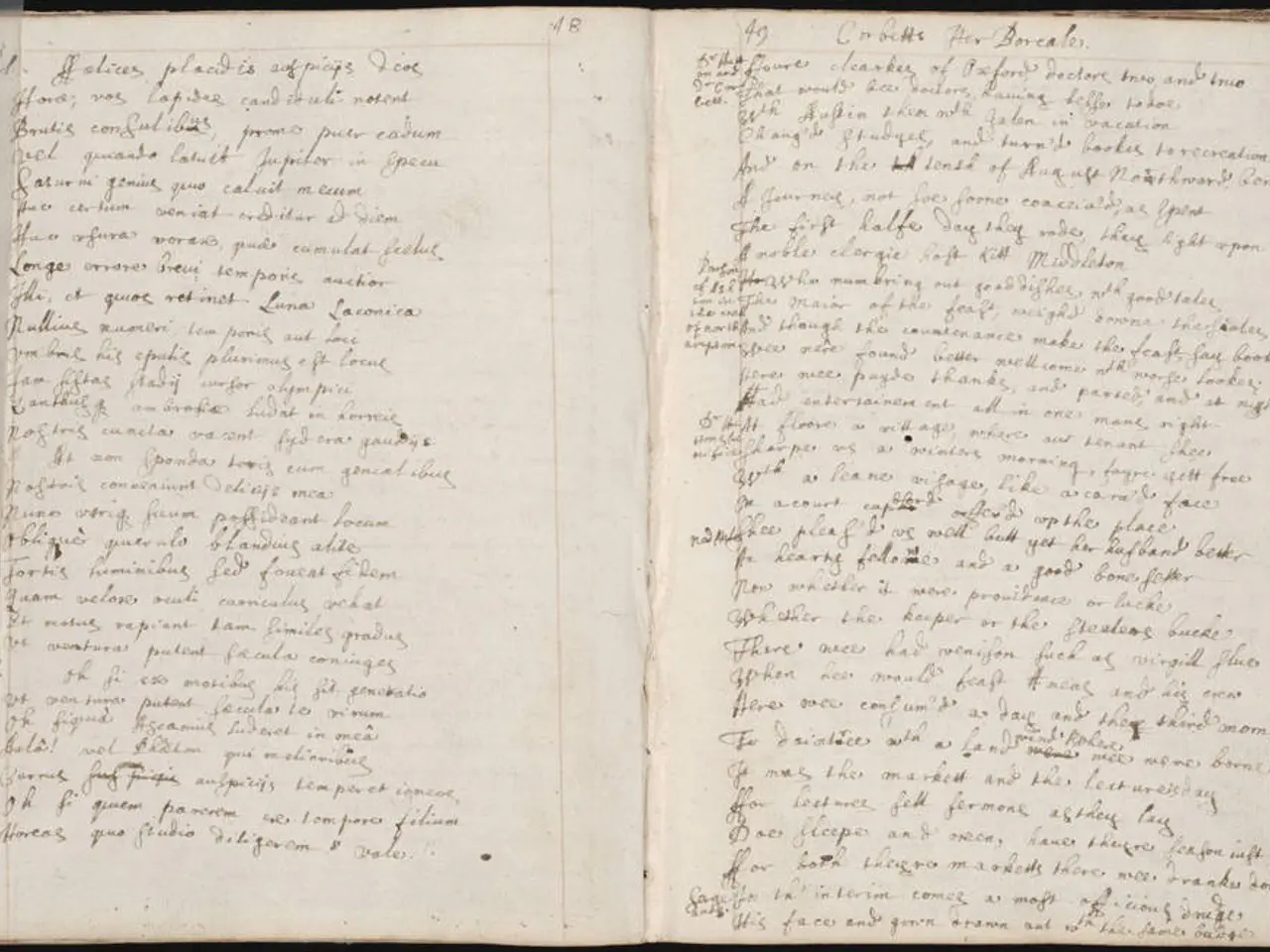United Kingdom's Literary Income Report
In a series of policy briefings published by CREATe, a research centre focused on copyright and creative industries, researchers have proposed a range of measures to improve the financial stability and sustainability of the writing profession in the UK.
One of the key policy briefings, titled "Authors' Earnings in the UK", sets out areas for possible policy action, proposed by researchers at CREATe. The brief, conducted between February and April 2022, was commissioned by the Authors' Licensing and Collecting Society (ALCS). The research uncovered concerning trends in authors' incomes, including a marked decline in median earnings for full-time writers.
The policy briefing is based on a PEC Discussion Paper titled "Creative Industries Innovation in Seaside Resorts and Country Towns". The authors of the policy brief include Dr. Amy Thomas, Professor Michele Battisti, and Professor Martin Kretschmer, with Professor Kretschmer serving as the Director of CREATe.
The researchers propose policy interventions to sustain and diversify the writing profession in the UK. These include establishing codes of conduct for publishers, strengthening copyright law to benefit creators, building authors' legal knowledge through training, and targeted changes to tax and social security provisions.
Implementing some of these proposed reforms could level the playing field between authors and publishers, empowering more people to sustain writing careers. For instance, there is evidence that writers under-utilise key rights, like moral rights and reversion clauses, which could give them greater control over their work.
Another policy brief, titled "Transitioning to Sustainable Production across the UK Theatre Sector", outlines recommendations for transitioning to more sustainable theatre production. This brief, along with the policy brief titled "Audiences and Workforce in Arts Culture and Heritage", uses census data to provide a comprehensive analysis of audiences.
The policy brief "Three ways to support growth in the creative industries" outlines three ways to support growth in the creative industries. This brief, along with the policy brief titled "Television production, international trade and pressures to consolidate", discusses the UK television production sector as one of Britain's leading creative export sectors.
While these policy briefs offer potential solutions, it's important to consider the challenges and complexities involved in implementing and funding these initiatives. Any policy changes would require significant funding and a coordinated effort from government, private organisations, and the writing community.
Moreover, balancing creativity and commercial viability is crucial. Policies should aim to support both the creative freedom of authors and the commercial viability of their work, ensuring that financial stability does not compromise artistic integrity.
By implementing these strategies, the UK can create a more supportive environment for authors, enhancing their financial stability and the sustainability of the writing profession. This, in turn, could foster a thriving creative sector that benefits both the economy and the public.
- The researchers at CREATe suggest creating codes of conduct for publishers as part of a strategy to support and diversify the writing profession in the UK.
- The policy brief "Authors' Earnings in the UK" emphasizes the importance of analyzing and strengthening copyright law to benefit creators and improve the financial stability of the writing profession.
- The policy brief "Transitioning to Sustainable Production across the UK Theatre Sector" highlights the role of personal-finance management in the sustainability of the arts sector and proposes solutions to address this issue.
- Implementing changes to tax and social security provisions, as suggested in the policy briefs, could potentially lead to talent retention and growth in the creative industries.
- The "Three ways to support growth in the creative industries" policy brief underscores the importance of internationalisation in the arts, advocating for policies that encourage collaboration with international counterparts.
- The policy brief "Audiences and Workforce in Arts, Culture and Heritage" showcases the value of data analysis in understanding and addressing the needs of the creative industries, providing insights into audience demographics and preferences.
- The policy brief "Television production, international trade, and pressures to consolidate" underscores the need for innovation in the UK television production sector, a key contributor to the nation's creative economy.
- The research conducted by CREATe reveals a decline in median earnings for full-time writers, highlighting the need for policy interventions to address this issue and support the financial stability of the writing profession.
- The policy briefs published by CREATe acknowledge the significance of business strategies and financial management in the creative industries, advocating for policies that foster financial literacy among creators.
- By implementing these policy interventions, the UK can leverage its rich creative heritage and foster a vibrant, sustainable creative sector that drives growth across various industries and enriches the overall economy.




